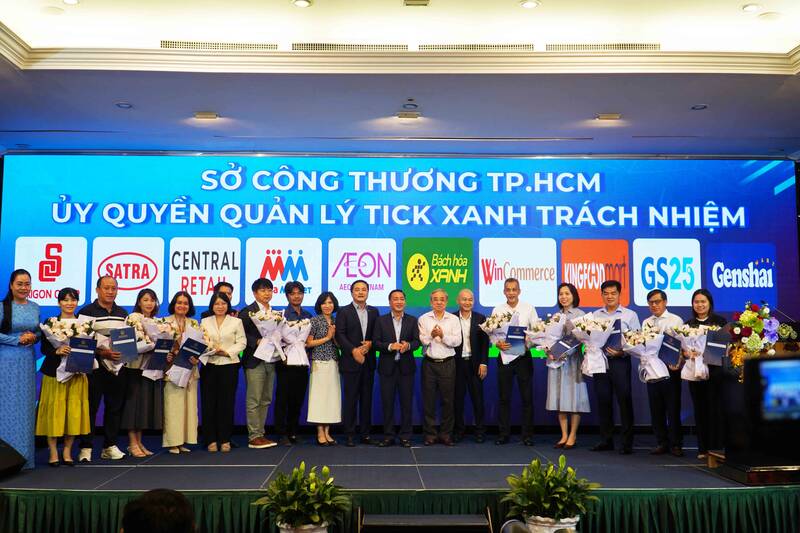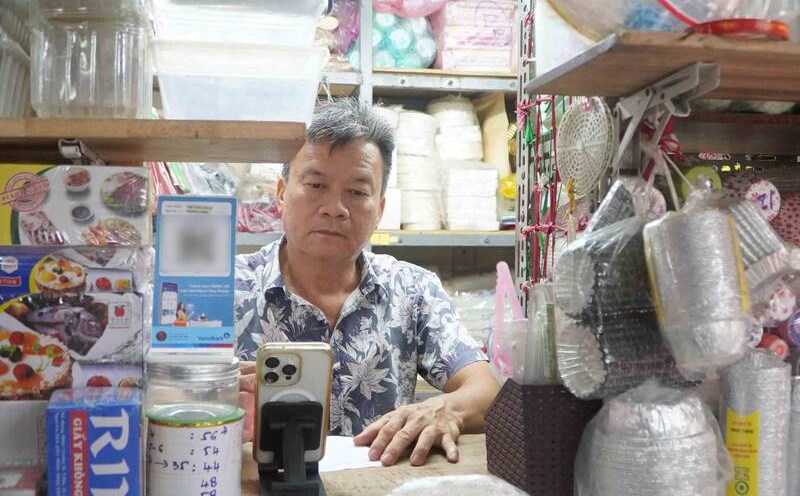The "Responsible Green Pick" program in the traditional retail system has been implemented by the Ho Chi Minh City Department of Industry and Trade since March 2024 with the participation of 11 large distribution corporations and hundreds of manufacturing enterprises.
Mr. Dinh Quang Khoi - Marketing Director of MM Mega Market Vietnam - shared: We believe that the implementation of the responsible green Tick program to enhance the application of traceability technology, transparency of product information and raise awareness for both suppliers and consumers is a key factor. We are committed to providing consumers with safe, sustainable and responsibly produced products, including the responsible green Tick label - a prestigious symbol of quality and transparency.

In the context of strong e-commerce development in parallel with worrying shortcomings in goods quality, transparency and marketing ethics, the Department of Industry and Trade of Ho Chi Minh City has officially launched the program "Green ticket for responsible e-commerce" - an initiative to reshape ethical standards and responsibility in the entire Vietnamese e-commerce ecosystem.
According to Mr. Nguyen Nguyen Phuong - Deputy Director of the Department of Industry and Trade of Ho Chi Minh City, expanding to the field of e-commerce is an urgent need, restoring consumer confidence and creating a civilized, transparent and fair digital space.

In the past 5 years, Vietnam has been recognized as one of the fastest growing e-commerce markets in Southeast Asia. However, along with this boom is a rapid increase in commercial scams, false advertising, counterfeiting and taking advantage of celebrities for profit.
Through inspection and examination, the authorities have discovered thousands of products of unknown origin and unsecured quality still sneaking through e-commerce platforms. Some KOCs (Key Op opinion Consumer) - influential people in the community - help promote substandard products. Consumers are "unclear" in information, deceived by pre-made images and advertising content. Genuine businesses are pushed into unfair competition, overwhelmed by poor quality goods.
The consequences are not only economic and credit damage, but also the risk of loss of control in consumer protection, especially for vulnerable groups such as the elderly, children and consumers in remote areas.











